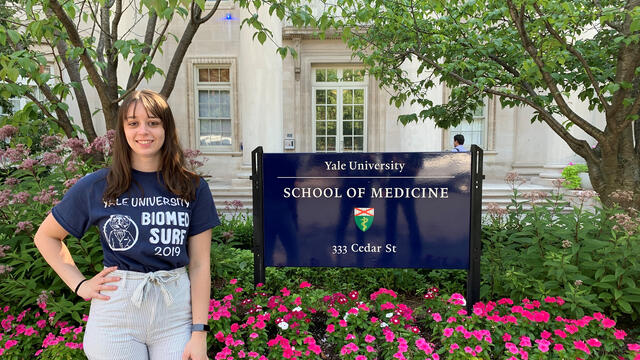Molecular Biology major conducts summer research at Yale as Amgen scholar
Jade Enright, a senior Molecular Biology major with a strong Chemistry minor, conducted research at Yale University after being named an Amgen Scholar. Enright worked in a graduate molecular biology lab overseen by a Yale professor and staffed with four post-doctoral fellows, four Ph.D. students and a lab manager.
